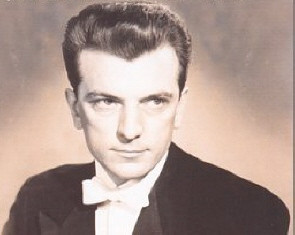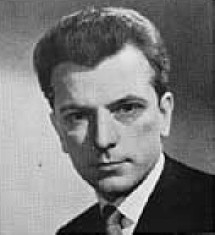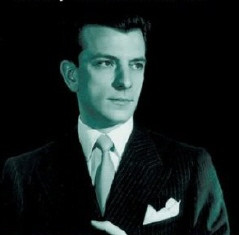Guido Cantelli
Настоящее имя: Guido Cantelli
Об исполнителе:
Italian orchestral conductor (Born: April 7, 1920 - Novara, Italy -- Died: November 24, 1956 in an airplane crash in Paris, France). Cantelli's musical youth was conventional and he received keyboard instruction. He was given a place in his father's military band when he was a small boy; appeared as organist at the local church from age 10; and made his debut as a pianist at age 14. Cantelli entered the nearby Milan Conservatory, where he majored in conducting and composition. He returned to his home city in 1941 as director of the Theatre Coccia, however, in 1943 he was forced to join the Italian army despite his hatred of Nazism. For this he was interned in a German labor camp near Stettin (1943-1944) until illness finally required hospitalization at Bolzano. He escaped with a forged passport and lived in Milan under an assumed name until Fascist troops took him hostage. Following the liberation in 1944, he was freed and pursued conducting engagements. The La Scala Orchestra became his first. Operatic and concert engagements followed, first in Italy, then elsewhere in Europe including Budapest and Vienna. Within three seasons, Cantelli caught the attention of Arturo Toscanini. Toscanini had been looking for a younger associate to conduct the NBC Symphony Orchestra during his absences. He arranged for Cantelli's NBC debut on January 15, 1949. Until NBC disbanded the NBC Symphony Orchestra in 1954, Guido Cantelli conducted annually, beginning with four but expanding to eight programs. In 1951 he made the first of five annual appearances as a regular guest-conductor of the New York Philharmonic Orchestra along with Bruno Walter and George Szell. He recorded Antonio Vivaldi's "Four Seasons" with the New York Philharmonic for Columbia, but RCA and EMI owned his services contractually. He also recorded with NBC Symphony Orchestra and Walter Legge's Philharmonia Orchestra. Arturo Toscanini's endorsement proved a double-edged sword, however. Some New York Philharmonic Orchestra players echoed the complaint by two daily newspaper critics that the regular guests conducted too much standard repertoire, perhaps because Cantelli was being groomed to take over. Cantelli had been a taskmaster who rehearsed and conducted without score; sluggish players resented him - so openly that he asked without success to be released from a late November 1956 engagement. La Scala formally named him music director on November 16 (to succeed Carlo Maria Giulini, who had succeeded Victor de Sabata in 1953 but detested administrative duties). One week later, a Lineo Aereo Italiano plane from Milan to NYC crashed following a stopover at Orly Airport near Paris. Guido Cantelli was not among the survivors. Arturo Toscanini died two months later without being told of Cantelli's death. Legge wrote in a memorial tribute to Cantelli, "no other conductor in the history of the art has established, so early in life, so wide a fame." While studio recordings validate that encomium, none quite captured the incandescence of his live performances. One-of-a-kind unmatched since, Cantelli was a supernova.


